|
An excerpt from the book: Fossil Facts & Fantasies by Joe Taylor Translated by:_____ (Pages 55-56)
Copyright 1999 - ISBN: 0-9700779-0-4
|
 |
|
An excerpt from the book: Fossil Facts & Fantasies by Joe Taylor Translated by:_____ (Pages 55-56)
Copyright 1999 - ISBN: 0-9700779-0-4
|
 |
There are antelope with horns on their noses, saber-tooth cats of all kinds, turtles with long prongs on the front of their shells, huge beasts that no one is sure what they are and rhinos so strange that they boggle the imagination.
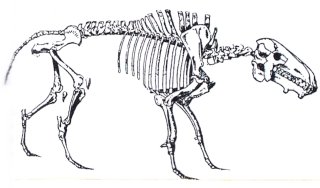
Figure 184 - Skeleton of the giant Oligocene pig Elotherium (Entelodon) ingens. Peterson, 1909. |
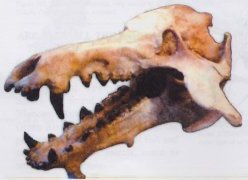
Figure 185 - Four-foot skull of male Archeotherium. Black Hills Institute |
The Brule and Chadron formations are 400 to 500 feet thick (120-150 meters), made up of mostly volcanic material. It appears that this vast area was covered quickly over a few months period. Perhaps layers of the Arikeree, Brule and Chadron as well as the "white dirt" or ash are all from the same source and time period.
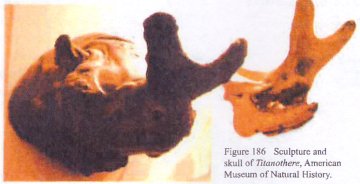
Figure 186 - Sculpture and skull of Titanothere, American Museum of Natural History. |
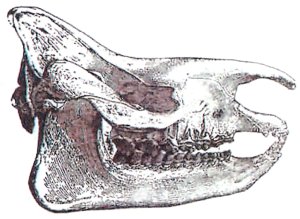
Figure 191 - (Another type of) Titanothere, South Dakota Badlands. |
Are They All the Same Age?
These White River, South Dakota deposits are supposed to be younger than the Green River, but older than the Blancan; however, three-toed horses are found in the Brule and Blancan. Mammals are found in the Green River shales, which contain the perfect remains of billions of fish and untold numbers of insects, some as small as mosquitoes.
Chinese Bird and Rhinos
In Morocco, rhinos have been found just like those of South Dakota, except the bones and teeth are white whereas the South Dakota teeth are dark gray or brown. China has produced a large number of fossil birds that still have feathers. One paleontologist told me that the birds were there for "millions" of years and one day they all got buried there. Oh, really?!
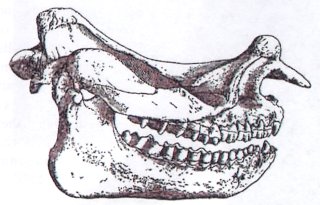
Figure 187 - South Dakota Rhino, Titanothere, Megaceretops marshi. Osborn 1902. |
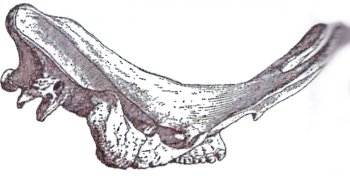
Figure 189 - Skull of Titanothere, Brontheontherium platyceras, Osborn 1896. (It is hard to believe the diversity of these animals.) |
Florida and South Carolina contain an endless supply of mastodons, horses and huge sloths, along with shark teeth without end, and, of course, the whales. Some farmers in the deep South made fences out of fossil whale bones!
Saber-tooth cats are not rare in South Dakota. The whole ecology in which they lived seems to have been covered all at once.
Something in Common
They all have some things in common. Vast numbers of these animals are buried whole, and often in "white dirt."
If they are not the evidences of the Great Flood, they are definitely
proof of wondrous cataclysms since!
|
|
|